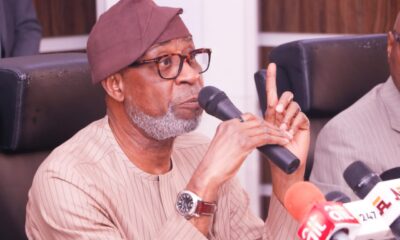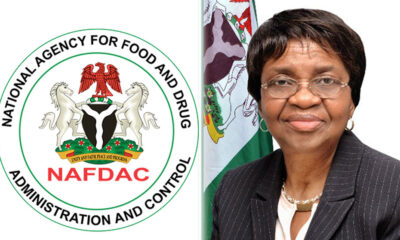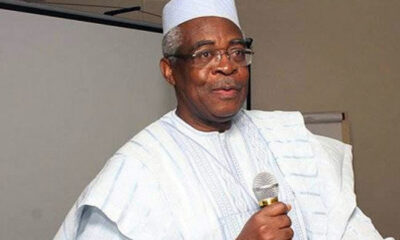Business
World Bank raises Nigeria’s GDP growth projection to 1.8%
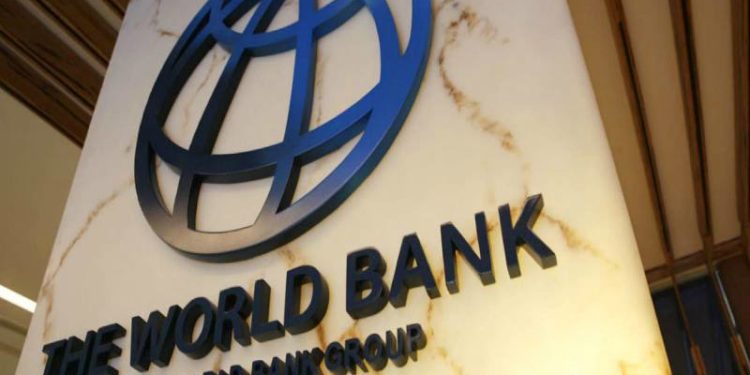
The World Bank has increased Nigeria’s Gross Domestic Product growth forecast for 2021 to 1.8 per cent, which is higher by 0.7 per cent than its initial projection earlier this year.
The bank, in its June 2021 Global Economic Prospect just released, also forecast the GDP growth to hit 2.1 per cent for the country in 2022, compared with the 1.8 per cent it had predicted for Nigeria in the earlier report released in January.
Nigeria recorded a GDP growth rate of 0.51 per cent (year-on-year) in the first quarter of 2021, (Q1 2021) compared with the 0.11 per cent recorded in the fourth quarter (Q4) 2020, according to figures the National Bureau of Statistics released last month.
But the World Bank said its positive prediction for Nigeria was based on the expectation that crude oil prices would remain high as well as the government effecting structural reforms and flexible exchange rate management.
It said, “Growth in Nigeria is expected to resume at 1.8 per cent in 2021 and edge up to 2.1 per cent next year, assuming higher oil prices, structural oil sector reforms, and market-based flexible exchange rate management.”
The report stated that output in sub-Saharan Africa shrank at an estimated 2.4 per cent in 2020 as a result of the COVID-19 pandemic, a milder-than-expected recession.
It added that growth in the region has gradually resumed this year, which it stated was a reflection of positive spillover from strengthening global economic activity, including higher oil and metal prices, and some progress in containing COVID-19, especially in Western and Central Africa.
“The pandemic has contributed to wider budget deficits and a spike in government debt, heightening the risk of debt distress in some countries. Activity in the three largest economies—Angola, Nigeria, and South Africa— has partially recovered.
“Many industrial and agricultural commodity exporting countries experienced deep contractions last year. In tourism reliant countries, international arrivals have been at a near-halt, and tourism is likely to remain slow until wider vaccination permits safe reopening to international travel.
“Despite improvement, COVID-19 has continued to have adverse impacts on health, schooling, investment, and economic growth,” it stated.
According to the report, in some countries such as Angola and Nigeria, accommodative monetary and fiscal policies, currency depreciations, and rising food and energy prices “have stoked inflation.”
“Elsewhere (Kenya, South Africa), subdued demand has kept inflation in check,” it added.
The report noted that foreign direct investments in the region had been resilient, recouping about nine-tenths of their pre-pandemic levels, and workers’ remittances to the region have held up better than expected.
“Growth is forecast to resume to 2.8 per cent this year and firm to 3.3 per cent in 2022, underpinned by stronger external demand, mainly from China and the United States, higher commodity prices, and containment of COVID-19.
“Procurement and logistical challenges are expected to continue hobble the pace of vaccination despite the provision of vaccines by COVAX. Policy uncertainty and the lingering effects of the pandemic are expected to delay major investments in infrastructure and extractives and to weigh on the recovery (Central African Republic, Equatorial Guinea, Niger, Kenya).
“Per capita income levels in 2022 are expected to be four per cent lower on average than in 2019. Conditions in the region’s fragile and conflict-affected countries are expected to be particularly challenging; their average output level in 2022 is forecast to be 5.3 per cent below its size in 2019,” it said.
World Bank Group President, Mr David Malpass, said, “While there are welcome signs of global recovery, the pandemic continues to inflict poverty and inequality on people in developing countries around the world.”
Business
Naira depreciates again, trades at N1,402/$

Naira depreciates again, trades at N1,402/$
The Nigerian currency, naira, on Thursday slightly depreciated at the official market, trading at N1,402.67 to the dollar.
Data from the official trading platform of the FMDQ Exchange, a platform that oversees the Nigerian Autonomous Foreign Exchange Market (NAFEM), showed that the naira lost N11.71
READ ALSO:
- Why I killed my one-year-old son – Delta woman
- Bandits kill nine civilian JTF members, kidnap three in Sokoto
- Yahaya Bello govt spending third term in office through Ododo – Clark
This represents a 0.84 per cent loss when compared to the previous trading date on Tuesday April 30, when it exchanged at 1,390.96 to a dollar.
However, the total daily turnover increased to 232.84 million dollars on Thursday, up from 225.36 million dollars recorded on Tuesday.
Meanwhile, at the Investor’s and Exporter’s (I&E) window, the naira traded between 1,445.00 and N1,299.42 against the dollar.
Naira depreciates again, trades at N1,402/$
Auto
Appeal court takes over NURTW case as NIC withdraws

Appeal court takes over NURTW case as NIC withdraws
The National Industrial Court has withdrawn from a case involving Alhaji Najeem Usman Yasin, Board of Trustees chairman of the National Union of Road Transport Workers (NURTW), and Alhaji Tajudeen Ibikunle Baruwa’s ambition to return as president of the union over lack of jurisdiction.
The industrial court’s decision was made to avoid conflict with the Court of Appeal, where the matter is already being heard.
Before the NIC announced its decision to hands-off the case, the defendants’ counsel, Mr. O.I. Olorundare SAN, had informed the court that the matter is currently before the Court of Appeal, Abuja division, and that the industrial court could not continue to adjudicate on the same matter.
The counsel cited authorities to support his claim, adding that the National Industrial Court does not have concurrent jurisdiction with the Court of Appeal.
The presiding judge, O.O. Oyewunmi, struck out the case, stating that the Appeal Court had taken over the matter and that the Industrial Court must respect the hierarchy of courts.
Alhaji Yasin and six others took the case to the Appeal Court, challenging the decision of the industrial court recognising a delegates’ conference held on May 24, 2023, where Baruwa was proclaimed as President of the union for a second term in office.
With the latest NIC judgement, both parties will now proceed to defend their positions at the Court of Appeal and await the final judgement.
Business
Multichoice shuns court order, proceeds with increase of DSTV, Gotv packages

Multichoice shuns court order, proceeds with increase of DSTV, Gotv packages
Despite the intervention of the CCPT, Multichoice Limited has proceeded to increase packages price for DSTV and GOTV as announce on Wednesday last week.
Newstrends had earlier reported that the corporation announced that the new rates will go into effect on Wednesday, May 1, 2024, in a statement.
Meanwhile, on Monday, MultiChoice Nigeria Limited was ordered by the Competition and Consumer Protection Tribunal (CCPT) in Abuja to suspend the planned prices and tariffs hike on packages and services.
READ ALSO:
- Ogun frees 49 inmates to decongest prisons
- JAMB, NCC in talks to produce special SIM for students
- Labour-FG face-off imminent as NLC rejects new salary increase
The three-member tribunal, presided over by Saratu Shafii, gave the interim order following an ex-parte motion moved by Ejiro Awaritoma, counsel for the applicant, Festus Onifade.
News prices includes: DStv, Premium bouquet, the price moved from N29,500 to N37,000; Compact+ from N19,800 to N25,000; Compact from N12,500 to N15,700; Confam from N7,400 to N9,300, among others.
For GOtv users, Supa+ increased from N12,500 to N15,700; Supa moved from N7,600 to N9,600; Max from N5,700 to N7,200; Jolli, from N3,950 to N4,850, among others.
Multichoice shuns court order, proceeds with increase of DSTV, Gotv packages
-

 metro3 days ago
metro3 days agoLabour Day: Nigerian workers are dedicated, resilient, says NURTW leader
-

 Auto2 days ago
Auto2 days agoAppeal court takes over NURTW case as NIC withdraws
-
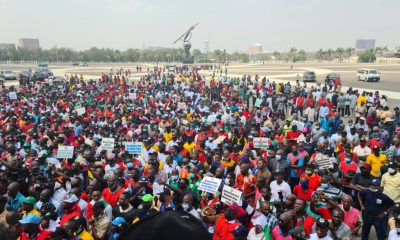
 News3 days ago
News3 days agoFG approves salary increase for civil servants, military, police
-

 News2 days ago
News2 days agoLabour-FG face-off imminent as NLC rejects new salary increase
-

 metro2 days ago
metro2 days agoInspector arrested with snatched car
-

 metro1 day ago
metro1 day agoSecurity forces, vigilantes arrest kidnapper terrorising communities in Kogi
-

 International2 days ago
International2 days agoBinance founder bags jail term in US
-
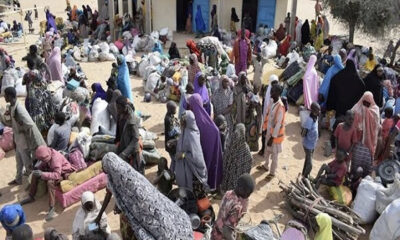
 News3 days ago
News3 days agoFG set to repatriate 20,000 Nigerians from Chad, Cameroon

